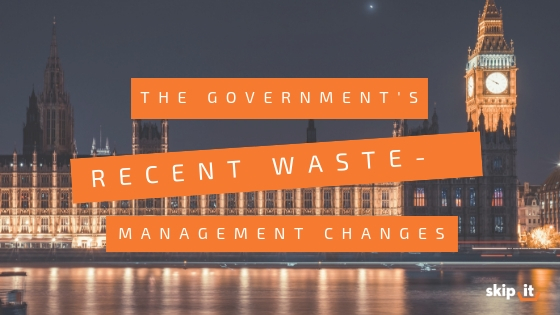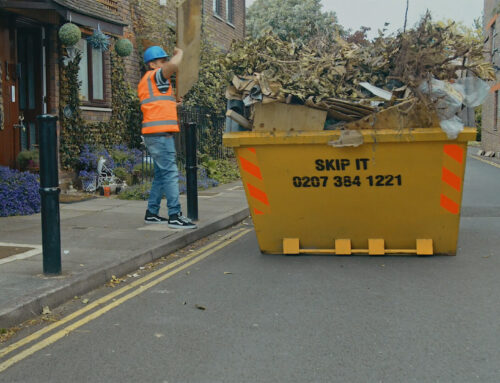In December 2018, the Environment Secretary, Michael Gove published the Draft Environment Bill and Defra also published the Draft Resources and Waste Strategy in December 2018. These new changes to the UK’s environmental and waste management laws are the first since 2007 and will have an important impact on the waste management industry.
We’ve investigated these new changes further.
The Draft Environment Bill
With Brexit still up in the air, the Draft Environment Bill will set out how the UK will govern the natural environment following the exit from the European Union. All new environmental laws after Brexit Day in March 2019 will be reflected by the Draft Environment Bill in order for the UK to continue with the positive environmental work that has been achieved whilst being a member of the bloc.
The Draft Environment Bill was first publicised by Prime Minister Theresa May back in July 2018 and it is built on three main premises, which will form environmental law and long-term accountability after Brexit Day.
These three premises are:
- The creation of an independent environmental watchdog
- The integration of various environmental principles in UK law
- The placement of a new 25 Year Environment Plan (25 YEP)
The new watchdog will be called the Office of Environmental Protection (OEP) and will be responsible for all the environmental law enforcement, providing impartial advice as well as operating surveillance. The OEP will be the UK’s version of the European Commission and European Environment Agency after Brexit Day. The key role of the OEP will be to keep a record of the government’s Environmental Improvement Plans (EIP) which is currently the 25 YEP, however, this is subject to change.
The Draft Environment Bill will include the integration of EU environmental laws into UK law to ensure that the country’s environmental laws are up to date after Brexit. There are still many EU laws which are not officially part of UK law that needs to be integrated in order to meet the government’s new environmental targets.
The 25 Year Environment Plan (25 YEP) will set out the UK government’s goals to help improve the environment within a generation and to leave it in a better state than we found it. This will include new environmental targets such as clean air, clean and plentiful water, mitigating and adapting to climate change, minimising waste and managing exposure to chemicals.
The Defra’s Resources and Waste Strategy for England – (RWS)
Defra’s Resources and Waste Strategy for England (RWS) is designed to improve the government’s current waste management policies, which will have a direct impact on England’s household recycling rates. In the years between 2000 and 2013, there was an increase in the recycling rate in English homes from 11 per cent to 45 per cent, however, this number has stagnated since 2013.
The new RWS strategy will include:
- Cutting down on food waste
- Helping household consumers take more considered action
- Measuring progress – data, monitoring and evaluation
- Recovering resources and managing waste
- Research and innovation
- International leadership
- Tackling waste crime
- Guidance for sustainable production
The RWS plan will help the government to make England become a world leader in the efficient use of resources alongside reducing the amount of waste that is produced in the residential sector. One of the new changes will also include a new circular economy. It will be introduced so that resources will be used for as long as possible before they are ultimately thrown away. You can read more about RWS here.
Skip It specialises in Skip Hire with competitive skip hire pricing. It offers House Clearance services, Wait & Load and waste clearance solutions for large commercial sites. To find out more about the wast










